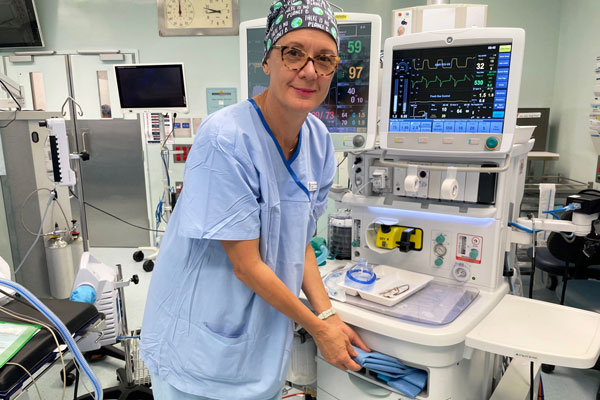
Kerstin and the anaesthetic team are leading the way in the fight against climate change
As part of their commitment to sustainability, the RBWH Anaesthetic Department has made an exciting decision to remove anaesthetic volatile agent Desflurane from use in the hospital.
This is set to reduce RBWH’s CO2 emissions by 674 metric tons, which is the equivalent of 145 petrol-powered passenger cars driven for one year.
Desflurane releases carbon emissions more than 2540 times that of CO2 and a tropospheric lifetime of 14 years and is considerably more expensive than the alternative anaesthetic gas, Sevoflurane.
The team has been working towards this target since 2016 and have employed a number of strategies to reach this point including staff consultation and education, regular updates on achievements, technical changes and adopting alternative greener anaesthesia delivery systems.
RBWH Director Anaesthesiology Kerstin Wyssusek said the achievement demonstrates the ability of clinicians to contribute significantly to carbon emissions reductions.
“The anaesthetic team has been visionary and proactive in implementing sustained environmental sustainability actions. We hope our achievement inspires other clinicians to investigate their team’s carbon emissions based on medication usage and procedures performed,” Kerstin said
“Clinicians have a professional obligation to fight climate change and the health impact this has on our patients and the global population.
“Our next goals are to streamline waste collection and recycling processes in the operation theatres, and maximise diversion of waste from landfill.
“Net Zero emissions in healthcare are only possible with the engagement of all hospital staff and we hope you join us in the fight against climate change.”